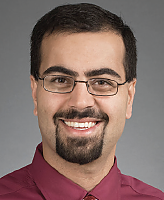Recognizing the Benefits of Maintenance of Certification

One topic that never fails to evoke strong emotions from my fellow residents is the boards. Most of them revolve around the cost of the initial exam, but the truth is you should have a bigger concern: maintenance of certification (MOC). Even after you’ve paid your fee and earned that initial certificate, all you really have is the right to start the MOC process. MOC involves annual self-study activities, educational modules, and a recertifying exam every 10 years. It is not unique to psychiatry; the American Board of Medical Specialties (the organization of which the American Board of Psychiatry and Neurology is one member) has mandated a MOC process in every specialty.
That might make you think about opting out of board certification, but the truth is that you can’t. Certification will be increasingly linked to your employability, because in the near future it will drive your medical license. Many states are now realizing that they base our licensing on the fact that we graduated from medical school, not on evidence that we have kept up with changes in psychiatry over time. And so, as a companion effort to MOC, the Federation of State Medical Boards has been exploring MOL—maintenance of licensure. Nobody really knows what form MOL will take, but an early foundational principle is that MOC activities should also satisfy MOL. Certification will not become mandatory in the near future, but it could soon be very difficult to keep an active license (and a job) without it.
Just as with MOC, APA and its state affiliates will work to make MOL as painless and simple as possible (you can find a number of resources on the APA Web site already), but we know we cannot prevent it. MOC and MOL did not emerge from thin air; they are a reflection of a broader trend in medicine. As a result of medicine’s prior missteps and instances of poor practice, some in the public no longer trust that doctors are current in their knowledge or prepared to deliver high-quality care.
Our future economic survival, as well as the preservation of our healing relationships, depends on restoring that trust. To do so, physicians in all specialties must prove that they are maintaining their skills. MOC and MOL are tools to build that proof, and while organized medicine may not welcome a new mandate, we have been forced to recognize them as a key element of the medical profession’s success.
A world in which each of us is continually measured and our worth challenged might seem dismal. I see it as a future of opportunities. First, we will know ourselves as never before—we will be required to reflect on our performance, assess our skills, and learn accordingly. In that process, we will learn our strengths, and each of us will know our individual marketable value to patients and payors.
Second, this new system appears likely to cost us less over time. Elimination of the oral board exams is already driving costs down by about $300 annually for initial certification, and ABPN leaders have announced a plan to minimize the burden on examinees. The officials I have talked with have always stated that they aggressively seek to reduce our costs; I and other APA representatives have nevertheless clearly stated your concerns at every chance we get. As I plan to take my boards in September 2013, I certainly wish the fees would drop much faster, but I cannot deny that they are dropping.
Third, even as ABPN gives us new mandates, it is also giving us new tools. It is offering a new specialty certification in brain-injury medicine, a field that has rapidly expanded with America’s recent wars. Its leadership has supported combined psychiatry training (med-psych, triple board, and others), which should produce leaders who can help psychiatry navigate the world of “integrated care.”
Finally, from my travels and conversations, I can say that ABPN leaders are listening. This is not an unaccountable board of shadowy figures. Many are nominated by APA. Several are colleagues I know from other work in organized medicine, people who have spent years advocating for our profession. These requirements come from the same experts we have trusted in residency as mentors, teachers, and leaders. That alone gives me hope, and even if my wallet is lighter than I want it to be, I know that my board fees are another investment in my future success. ■



